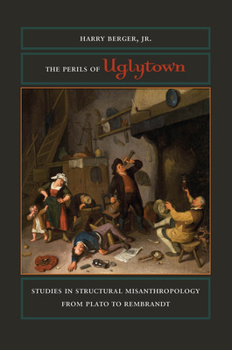The Perils of Uglytown: Studies in Structural Misanthropology from Plato to Rembrandt
Select Format
Select Condition 
Book Overview
With characteristic wit, Harry Berger, Jr., brings his flair for close reading to texts and images across two millennia that illustrate what he calls "structural misanthropology." Beginning with a novel reading of Plato, Berger emphasizes Socrates's self-acknowledged failures. The dialogues, he shows, offer up, only to dispute, a misanthropic polis. The Athenian city-state, they worry, is founded on a social order motivated by apprehension--both the desire to take and the fear of being taken. In addition to suggesting new political
and philosophical dimensions to Platonic thought, Berger's attention to rhetorical practice offers novel ways of parsing the dialogic method itself.
Format:Paperback
Language:English
ISBN:0823245179
ISBN13:9780823245178
Release Date:July 2015
Publisher:Fordham University Press
Length:336 Pages
Weight:1.00 lbs.
Dimensions:0.6" x 5.8" x 9.1"
Customer Reviews
0 rating





